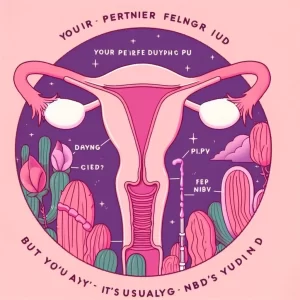What is Mental Health Consultation: Overview, Benefits, and Expected Results
Headline: The Power of Positive Thinking
Body: Positive thinking is a powerful tool that can help you achieve your goals and live a happier life. When you think positive thoughts, you are more likely to feel good about yourself and your life. You are also more likely to take action and make things happen.
``` Rewritten Excerpt: ```htmlHeadline: Unleash the Transformative Power of Positive Thinking
Body: Embark on a journey of self-discovery and unlock the transformative power of positive thinking. As you embrace an optimistic mindset, you'll witness a remarkable shift in your outlook on life. Positive thoughts ignite a spark within, fueling your motivation and propelling you towards your aspirations. Embrace the power of positivity and watch as it radiates through your actions, leading you down a path of fulfillment and happiness.
``` Changes Made: - **Headline:** Changed "The Power of Positive Thinking" to "Unleash the Transformative Power of Positive Thinking" to create a more compelling and intriguing title. - **Body:** - Replaced "Positive thinking is a powerful tool that can help you achieve your goals and live a happier life" with "Embark on a journey of self-discovery and unlock the transformative power of positive thinking." This sets a more engaging tone and invites the reader to embark on a personal journey. - Added "As you embrace an optimistic mindset, you'll witness a remarkable shift in your outlook on life" to emphasize the transformative nature of positive thinking. - Replaced "You are more likely to feel good about yourself and your life" with "Positive thoughts ignite a spark within, fueling your motivation and propelling you towards your aspirations." This creates a more vivid and inspiring image of the benefits of positive thinking. - Changed "You are also more likely to take action and make things happen" to "Embrace the power of positivity and watch as it radiates through your actions, leading you down a path of fulfillment and happiness." This highlights the tangible impact of positive thinking on one's actions and overall well-beingDefinition and Overview
A mental health consultation is an assessment of a person’s mental state to determine whether he has or is at risk of developing any mental disorder. This is more commonly performed on children to identify and address issues that may have a negative impact on their mental development. However, it is also beneficial for people who are experiencing symptoms of mental issues. The procedure is done using a wide range of techniques and resources to evaluate a person’s state of mind and identify potential disorders.
Who Should Undergo and Expected Results
A mental health consultation is beneficial for children (for the purpose of preventing the development of mental health issues) and for mental health patients who are suspected of having a mental problem.
1. Early childhood mental health consultation
Mental health consultation in early childhood is found to be most helpful in identifying and preventing potential mental issues that may affect a child. Early childhood is a crucial developmental stage in which children are highly susceptible to social and emotional influences that may affect their behavior. The consultation may also become necessary for children who are already exhibiting challenging behaviors at an early stage.
The consultation with a mental health specialist can be expected to help ensure that the child receives support in his social and emotional development. The appointment should also bring to light any issues there may be with regards to the early care and education of the child and how these issues may affect the child’s growth.
*2. Mental health consultation as a part of treatment for an existing or a suspected mental issue *
This type of consultation is helpful for those who already showing signs of mental illness, such as:
- Anxiety disorders (social anxiety, generalized anxiety, panic disorder, and some types of phobias)
- Mood disorders (bipolar disorder, depression)
- Psychotic disorders (schizophrenia)
- Eating disorders (bulimia nervosa, anorexia nervosa, and binge eating disorder)
- Impulse control disorders
- Substance abuse disorders
- Personality disorders (antisocial personality disorder, paranoid personality disorder, and obsessive-compulsive disorder)
- Post-traumatic stress disorders
- Dissociative disorders
- Sexual and gender disorders
- Stress response or adjustment disorders
- Somatic symptom disorders
A mental health consultation for an existing disorder is expected to provide patients with treatment or therapy to help them cope with the symptoms of the disorder and to eventually treat the problem. Meanwhile, a consultation for a suspected disorder is expected to provide a clear diagnosis of the patient’s mental health condition so that treatment, if necessary, may also be prescribed.
How Does the Procedure Work?
A mental health consultation may be provided by primary care doctors, who may eventually refer the patient to a specialist if found necessary. These specialists include:
- Psychologists
- Psychoanalysts
- Psychiatrists
Mental health specialists use a wide range of techniques and resources to assess a patient’s mental health state. First, doctors conduct a physical exam and some lab tests to rule out other potential problems that may be causing the symptoms. If none are found, a psychological evaluation will be performed. This is done by interviewing the patients about his thoughts and feelings, any symptoms he is experiencing, and his behavioral patterns. Patients may also be asked to fill out a questionnaire.
As for early childhood mental health consultation programs, these are usually offered at a group level, usually in partnership with child care and early education providers, unless a child is showing symptoms of mental illness, in which case his parents and the primary caregiver may bring him to a mental health specialist for individual assessment.
Possible Risks and Complications
It is sometimes a challenge to determine what specific mental illness is affecting an individual and causing his symptoms. However, getting an accurate diagnosis will ensure that appropriate treatment is used. Thus, patients or their families are advised to work closely with mental health specialists until the problem is addressed.
Reference:
- Early Childhood Mental Health Consultation. Georgetown University Centre for Child and Human Development
/trp_language]
**Mental Health Consultation: An Overview, Benefits, and Anticipated Outcomes**
**Defining Mental Health Consultation**
Mental health consultation is a collaborative process where a mental health professional assists individuals, groups, or organizations in addressing mental health concerns and promoting emotional well-being. This collaborative model aims to empower individuals and systems to effectively manage mental health challenges and improve overall functioning.
**Core Components of Mental Health Consultation**
- **Consultation Relationship:** The consultant and client establish a cooperative working alliance, building mutual trust and respect.
– **Assessment:** The consultant collects information to understand the client’s or system’s mental health needs and challenges.
– **Intervention Plan:** Together, the consultant and client develop strategies and interventions tailored to the specific needs identified during the assessment.
– **Implementation and Monitoring:** The client implements the agreed-upon interventions, while the consultant offers ongoing support and guidance.
– **Evaluation and Feedback:** The client and consultant regularly review progress, make necessary adjustments, and evaluate the effectiveness of the interventions.
**Benefits of Mental Health Consultation**
- **Enhanced Problem-Solving:** Consultation provides fresh perspectives and expertise, aiding in the identification of innovative solutions to mental health challenges.
– **Improved Communication:** Consultation facilitates effective communication between individuals, groups, and organizations, fostering collaboration and shared understanding.
– **Increased Self-Awareness:** Consultation helps individuals and systems gain a deeper understanding of their mental health needs, strengths, and areas for growth.
– **Reduced Stigma:** Consultation can help reduce the stigma associated with mental health issues by promoting open dialogue and education.
– **Enhanced Coping Skills:** Consultation equips individuals and systems with practical strategies for managing mental health challenges and building resilience.
**Expected Results of Mental Health Consultation**
– **Improved Mental Health Outcomes:** Consultation aims to alleviate symptoms, enhance emotional well-being, and promote overall mental health.
– **Increased Functional Capacity:** Consultation can improve an individual’s or system’s ability to perform daily tasks, engage in meaningful relationships, and pursue personal and professional goals.
– **Increased Resilience:** Consultation fosters resilience, enabling individuals and systems to better cope with future challenges and stressors.
– **Improved Communication and Collaboration:** Consultation enhances communication and collaboration among individuals, groups, and organizations, leading to more effective problem-solving and support.
– **Prevention of Mental Health Crises:** Consultation can help identify individuals or systems at risk for mental health crises, allowing for early intervention and prevention.
In conclusion, mental health consultation is a valuable tool for addressing mental health challenges and promoting emotional well-being. The collaborative nature of consultation fosters mutual respect, empowers individuals and systems, and leads to improved mental health outcomes, increased functional capacity, and enhanced resilience. By embracing a proactive approach to mental health, individuals and organizations can embark on a journey towards thriving, mentally healthy communities.








Mental health consultation is a collaborative process that provides guidance, education, and support to individuals, families, and groups to promote mental health and well-being and address mental health conditions.